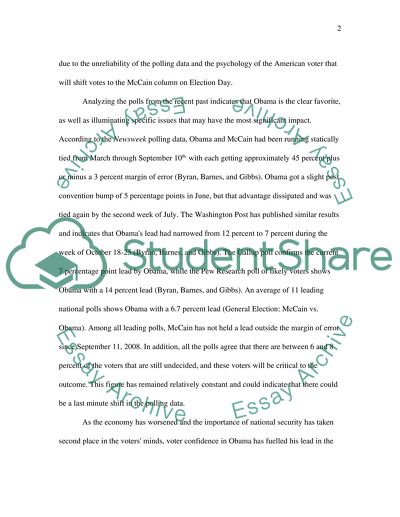Cite this document
(“Election 2008: Political Prognostication Essay Example | Topics and Well Written Essays - 1500 words”, n.d.)
Retrieved from https://studentshare.org/politics/1506530-election-2008-political-prognostication
Retrieved from https://studentshare.org/politics/1506530-election-2008-political-prognostication
(Election 2008: Political Prognostication Essay Example | Topics and Well Written Essays - 1500 Words)
https://studentshare.org/politics/1506530-election-2008-political-prognostication.
https://studentshare.org/politics/1506530-election-2008-political-prognostication.
“Election 2008: Political Prognostication Essay Example | Topics and Well Written Essays - 1500 Words”, n.d. https://studentshare.org/politics/1506530-election-2008-political-prognostication.


